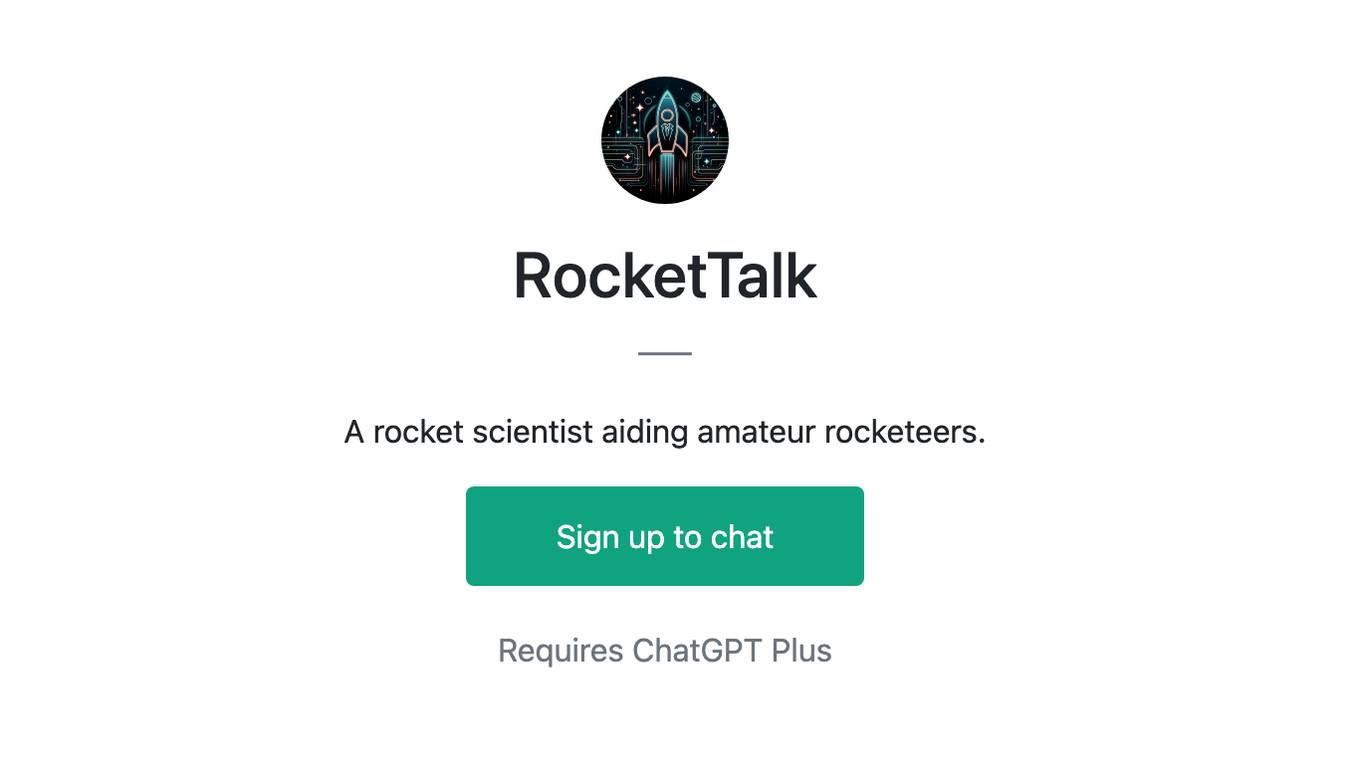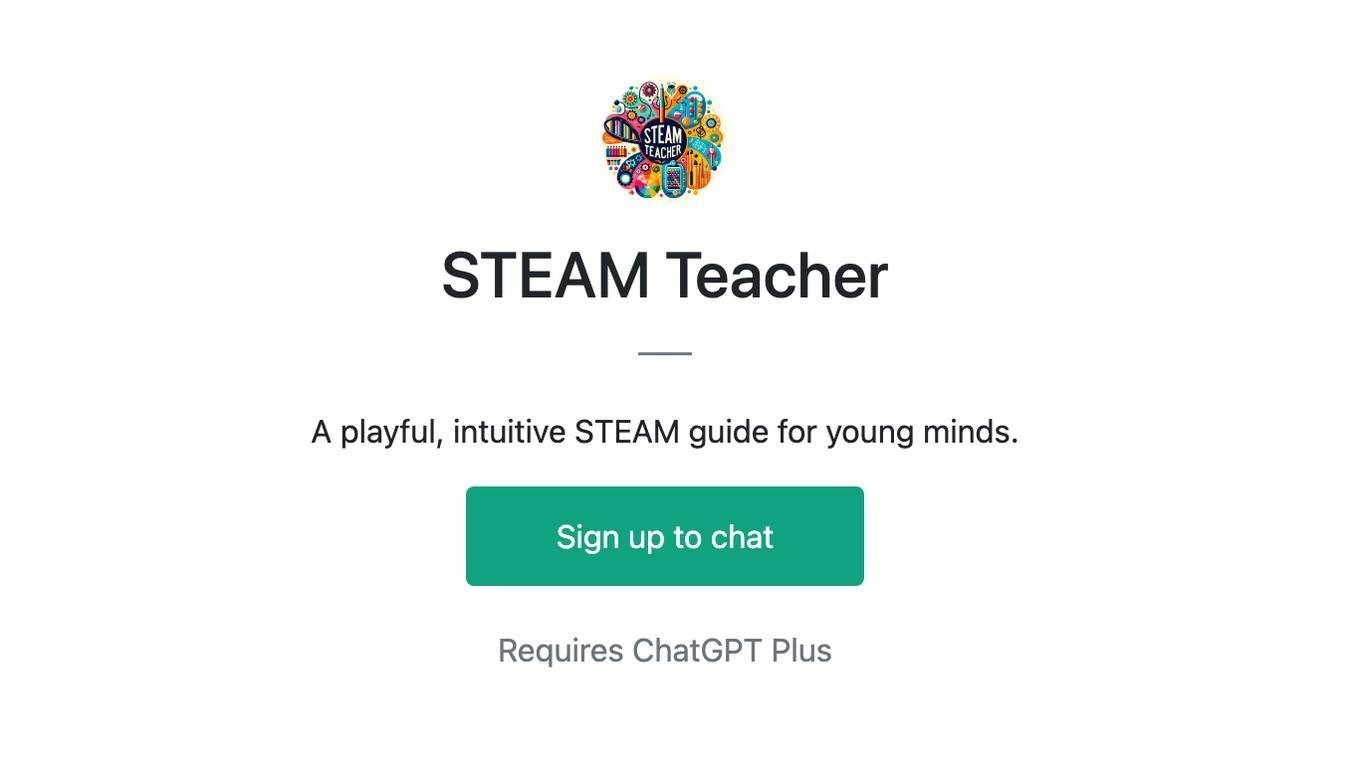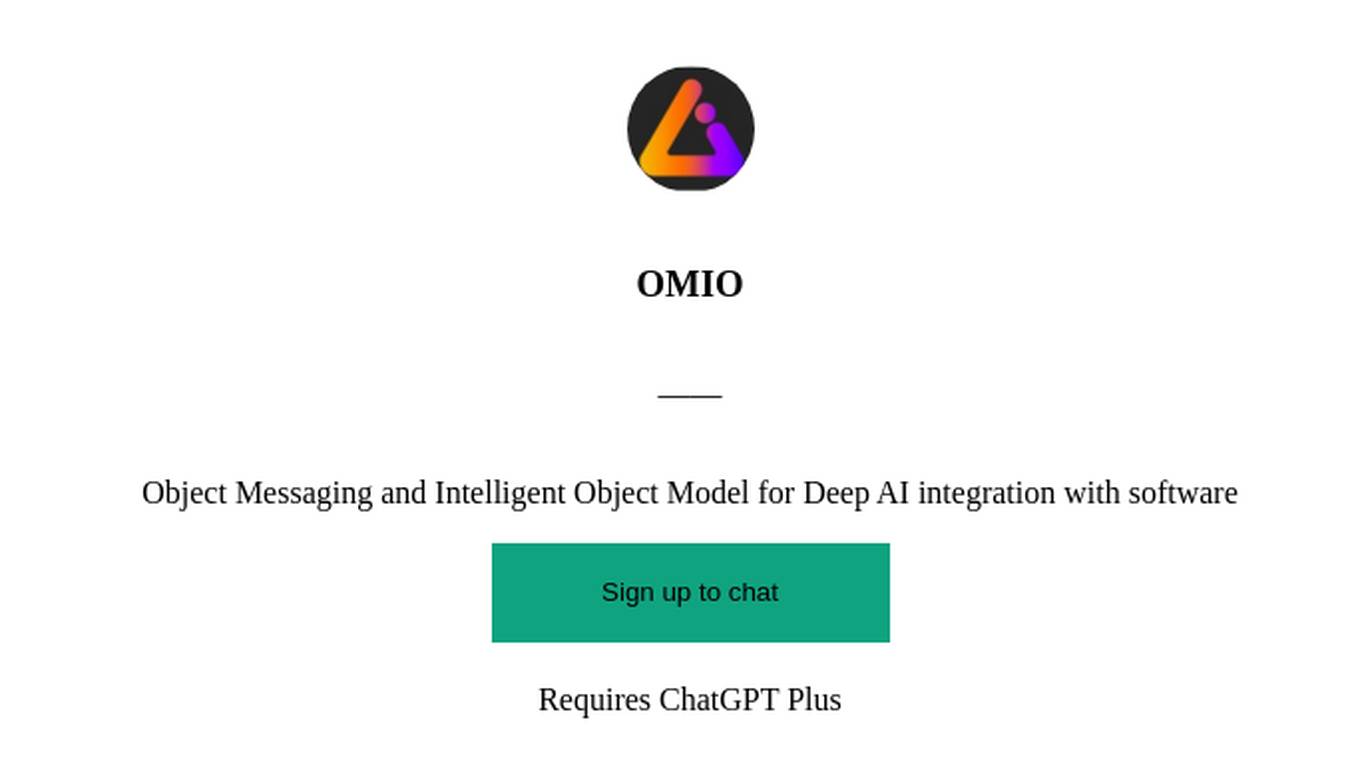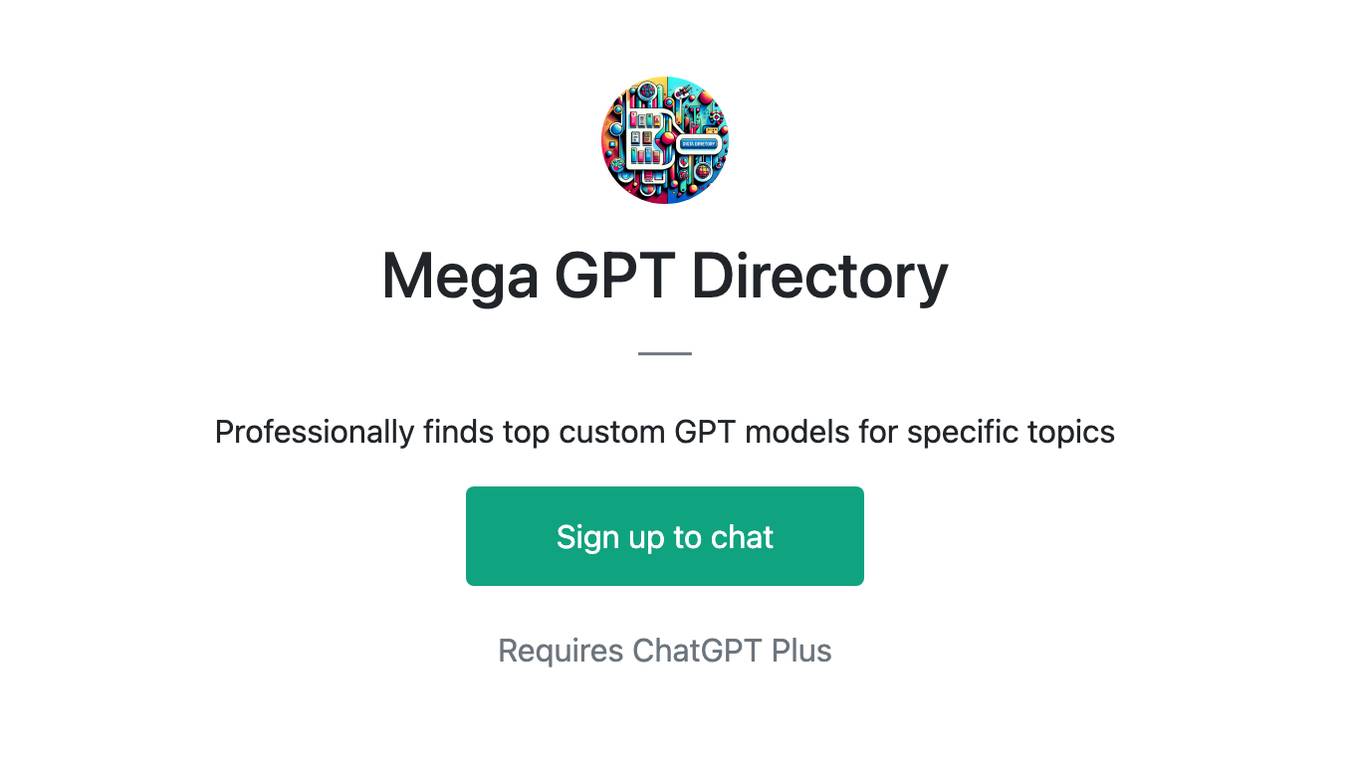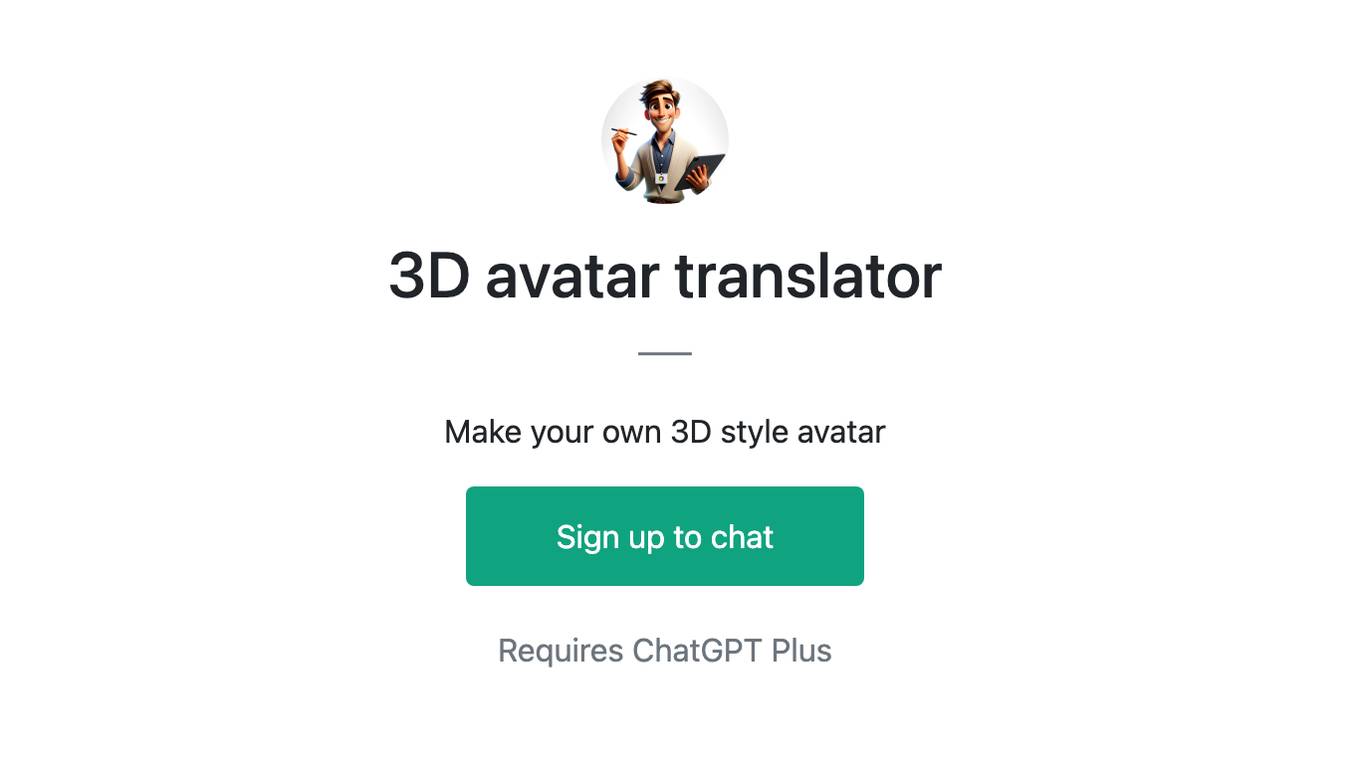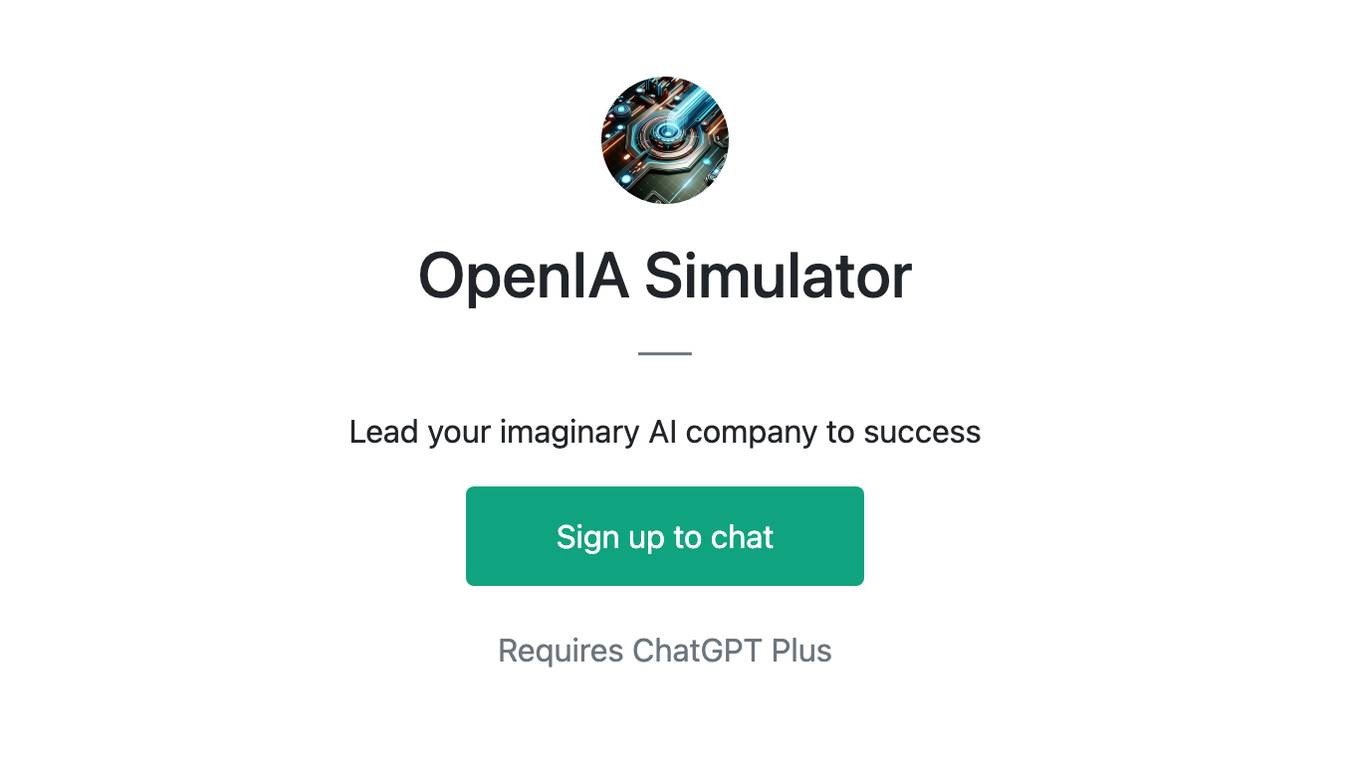Best AI tools for< Build Model Rockets >
20 - AI tool Sites
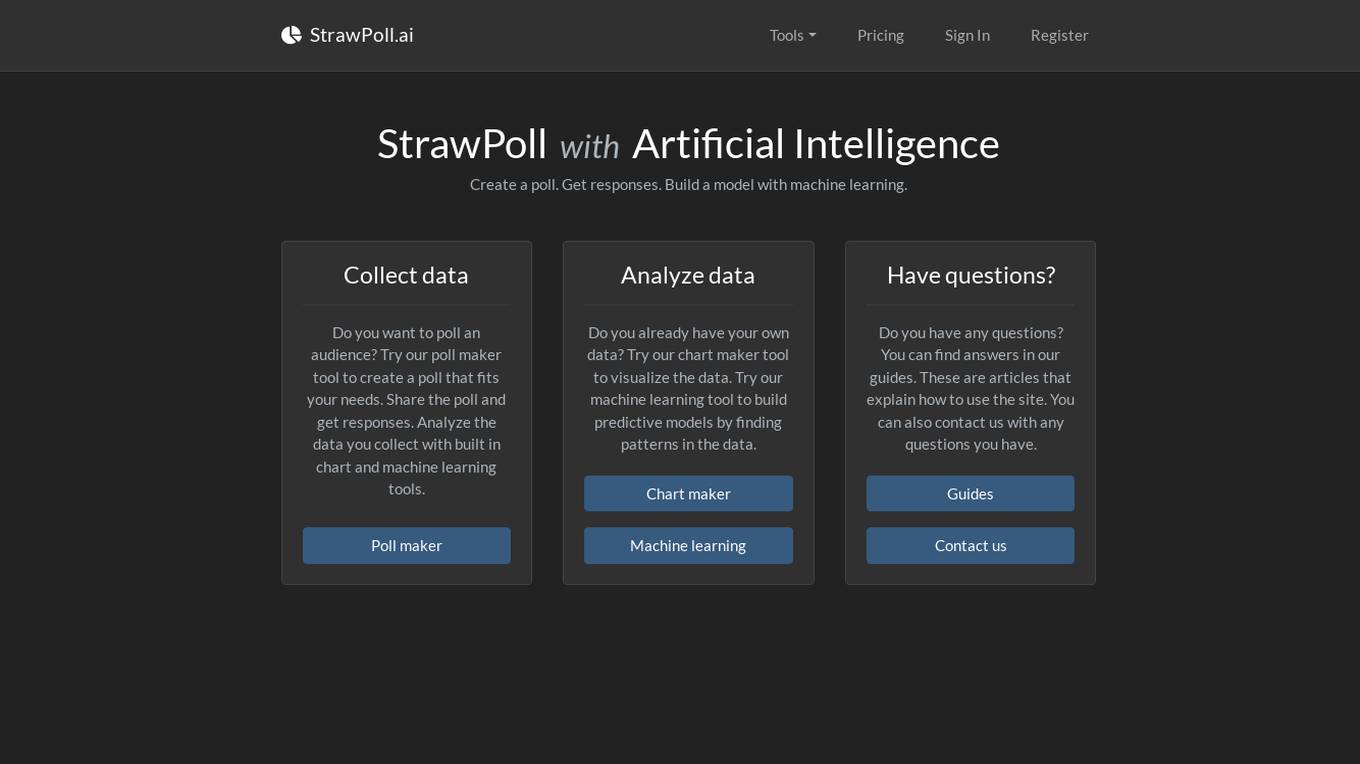
StrawPoll.ai
StrawPoll.ai is an AI-powered platform that offers tools for creating polls, generating charts, and utilizing machine learning to analyze data. Users can easily create polls tailored to their needs, share them to collect responses, and analyze the data using built-in chart and machine learning tools. The platform also provides a chart maker tool for visualizing existing data and a machine learning tool for building predictive models by identifying patterns in the data. Additionally, users can access guides for assistance and contact support for any queries.
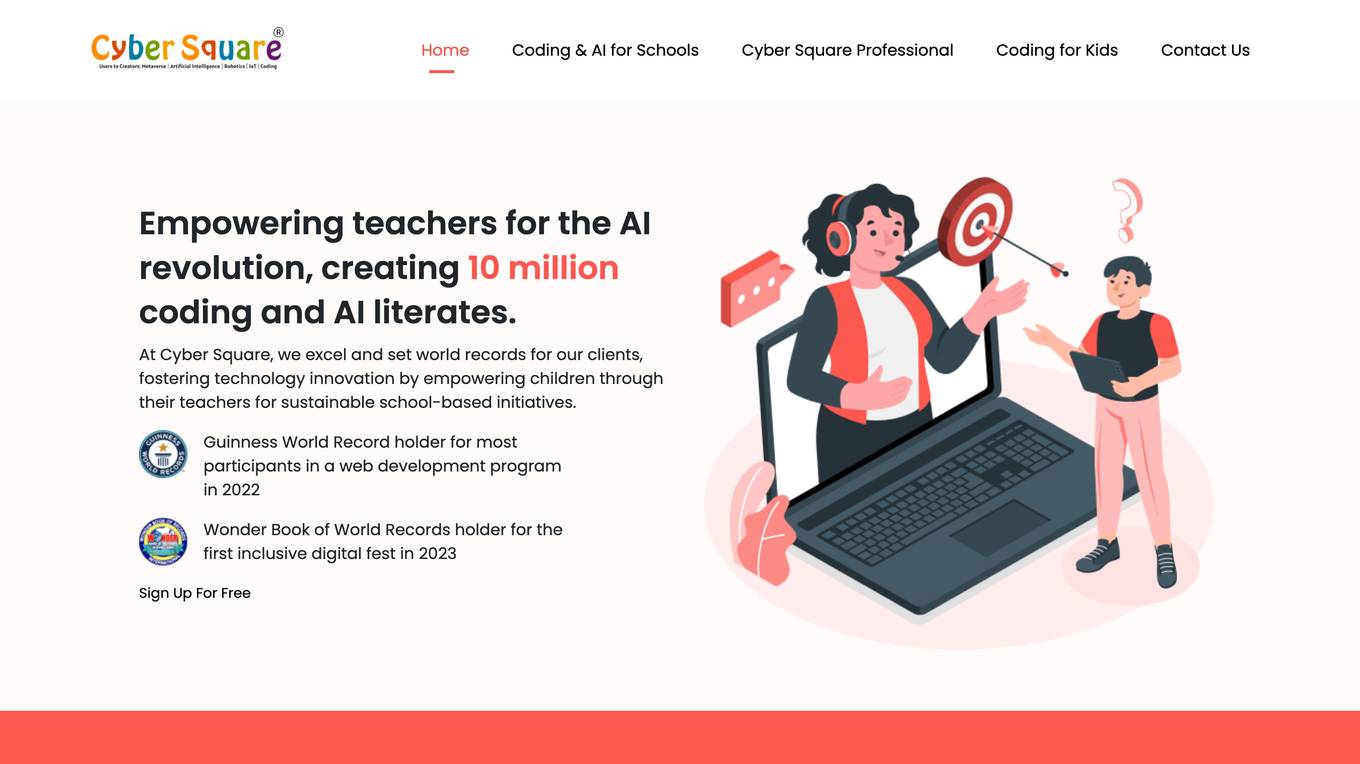
Cyber Square
Cyber Square is an educational platform that provides coding and AI-aligned curriculum for schools from KG 1 to plus two. It empowers CS teachers and is trusted by more than 150 schools and 100,000 students in over 10 countries. Cyber Square leverages AI to make life easier for teachers and provides a cloud-based computer lab with individual logins. It also offers a Digital Fest where students can showcase their tech projects and presentations. Cyber Square has a team of experienced professionals led by MNNIT Allahabad Alumni and provides international collaboration and IT internship experience for college students.

PhotoTravel AI
PhotoTravel AI is an innovative AI application that allows users to take photos of themselves at famous landmarks worldwide without physically traveling to those locations. Users can upload their images to build their AI model, which then generates realistic photos of them at iconic tourist spots. The application provides an affordable and convenient alternative to traditional travel, enabling users to create and share memories from the comfort of their homes.
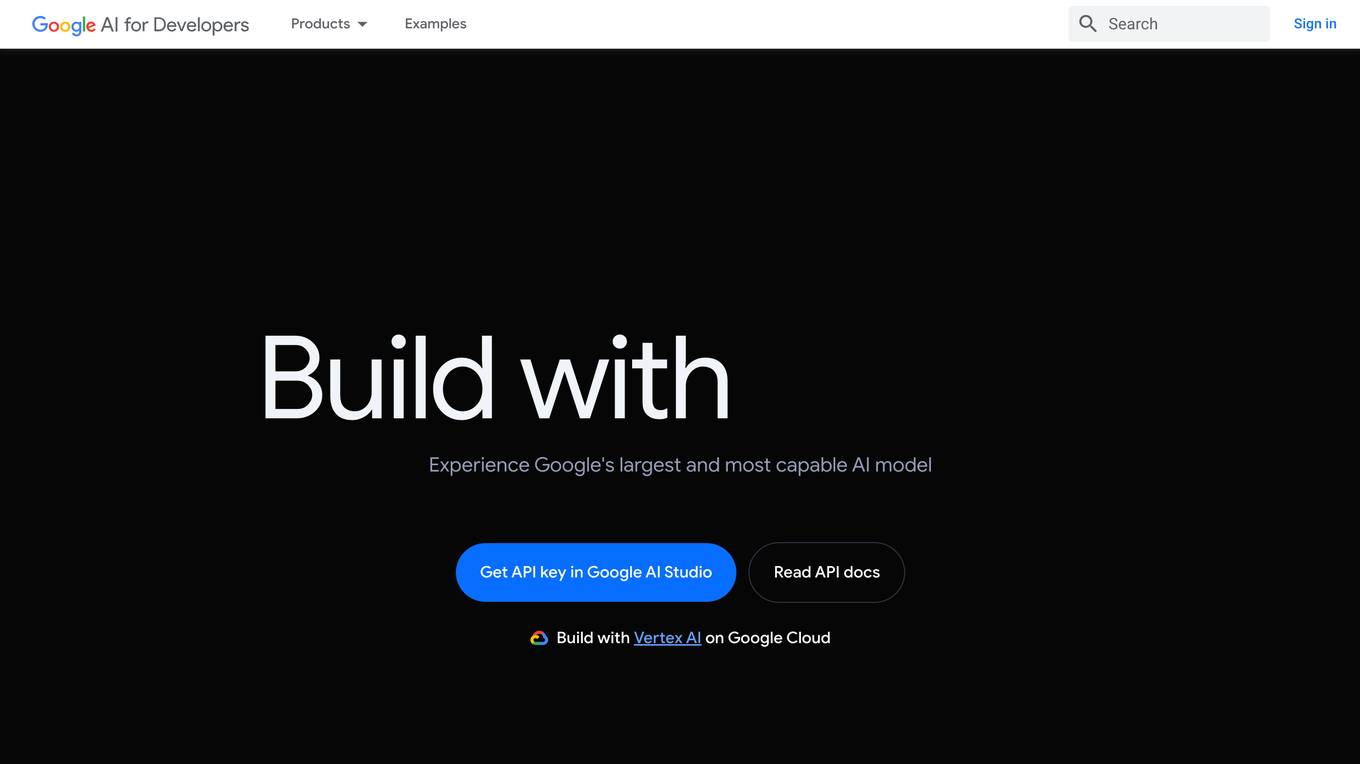
Gemini
Gemini is a large and powerful AI model developed by Google. It is designed to handle a wide variety of text and image reasoning tasks, and it can be used to build a variety of AI-powered applications. Gemini is available in three sizes: Ultra, Pro, and Nano. Ultra is the most capable model, but it is also the most expensive. Pro is the best performing model for a wide variety of tasks, and it is a good value for the price. Nano is the most efficient model, and it is designed for on-device use cases.
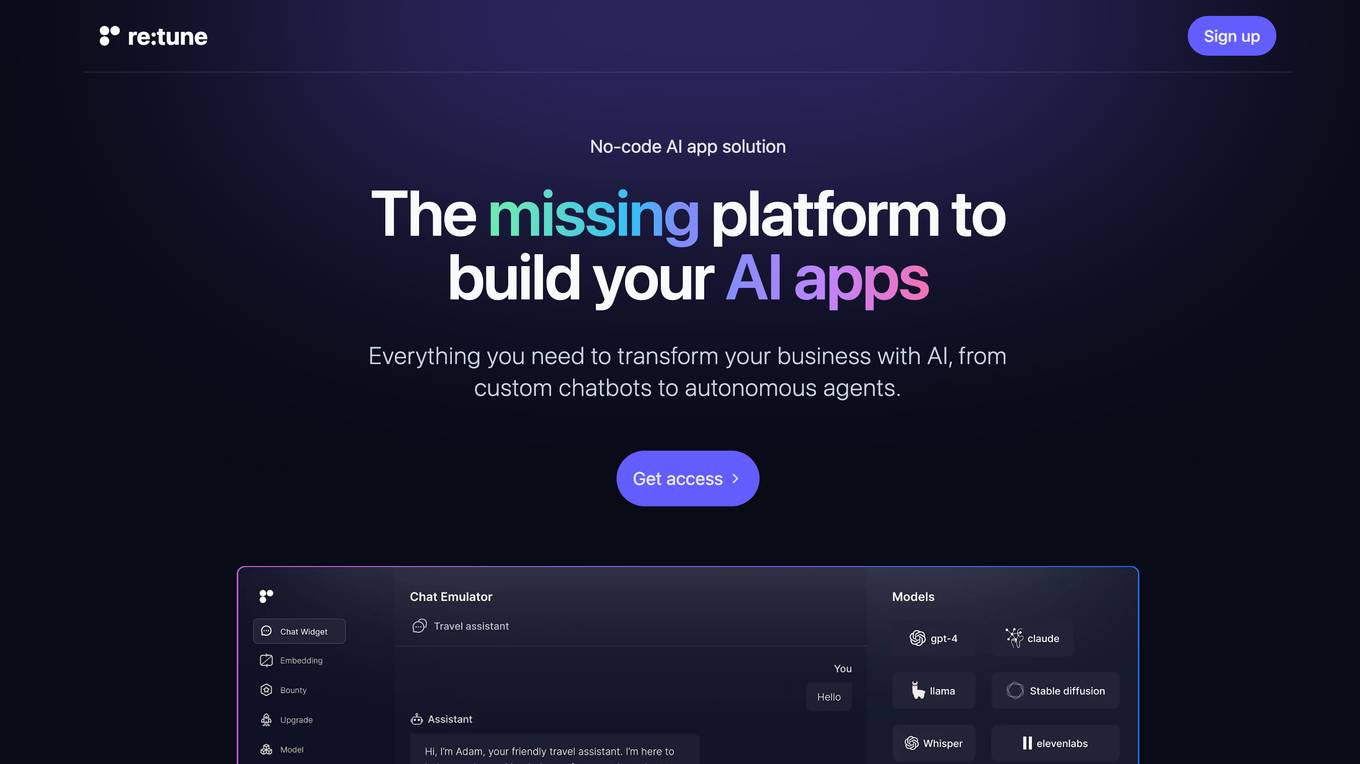
re:tune
re:tune is a no-code AI app solution that provides everything you need to transform your business with AI, from custom chatbots to autonomous agents. With re:tune, you can build chatbots for any use case, connect any data source, and integrate with all your favorite tools and platforms. re:tune is the missing platform to build your AI apps.

Shortcut
Shortcut is an AI-powered Excel tool that revolutionizes spreadsheet work. It is designed to enhance accuracy, auditability, Excel parity, and speed in handling complex tasks. Shortcut ensures professional formatting, never overwrites existing data, and provides instant auditability with enterprise-grade security. With seamless file compatibility, 95% feature parity on the web, and lightning-fast performance, Shortcut is the go-to solution for professionals seeking efficiency and precision in Excel tasks.
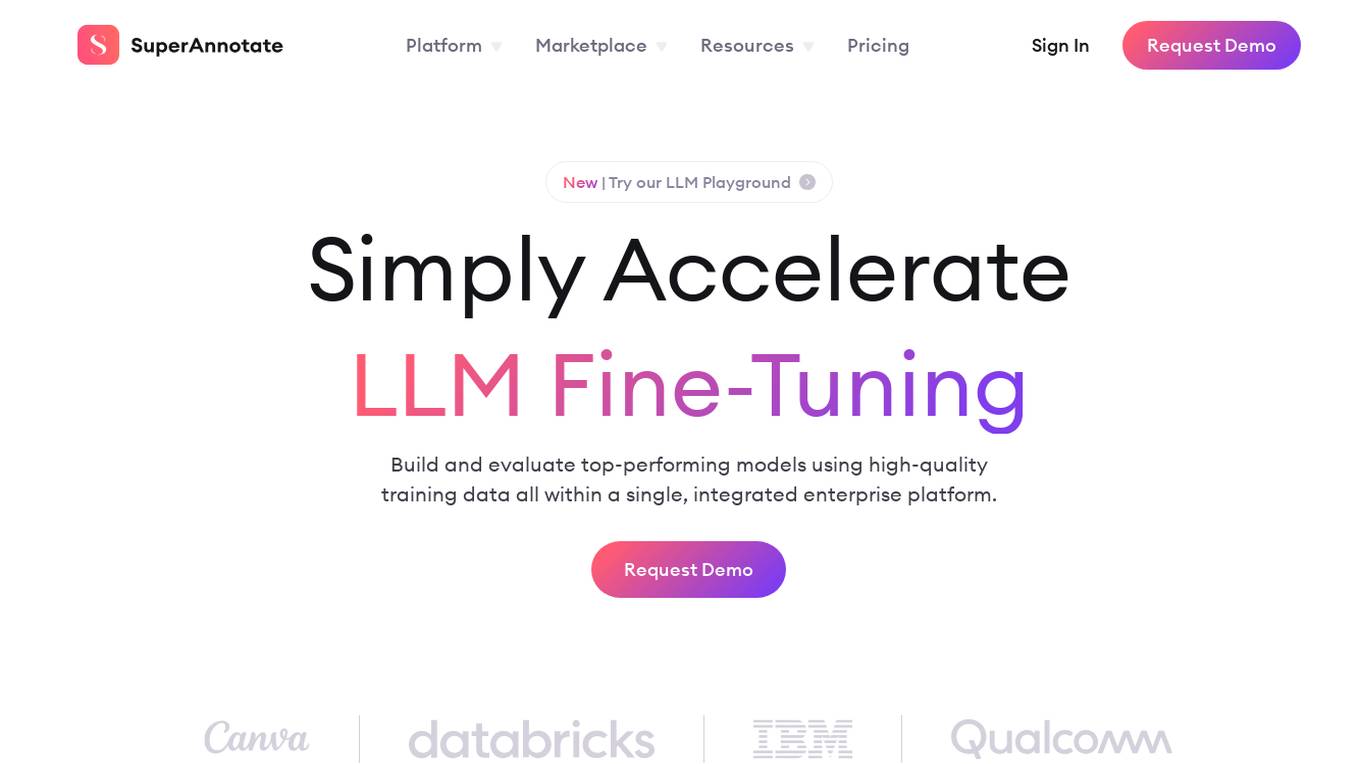
SuperAnnotate
SuperAnnotate is an AI data platform that simplifies and accelerates model-building by unifying the AI pipeline. It enables users to create, curate, and evaluate datasets efficiently, leading to the development of better models faster. The platform offers features like connecting any data source, building customizable UIs, creating high-quality datasets, evaluating models, and deploying models seamlessly. SuperAnnotate ensures global security and privacy measures for data protection.

Bibit AI
Bibit AI is a real estate marketing AI designed to enhance the efficiency and effectiveness of real estate marketing and sales. It can help create listings, descriptions, and property content, and offers a host of other features. Bibit AI is the world's first AI for Real Estate. We are transforming the real estate industry by boosting efficiency and simplifying tasks like listing creation and content generation.
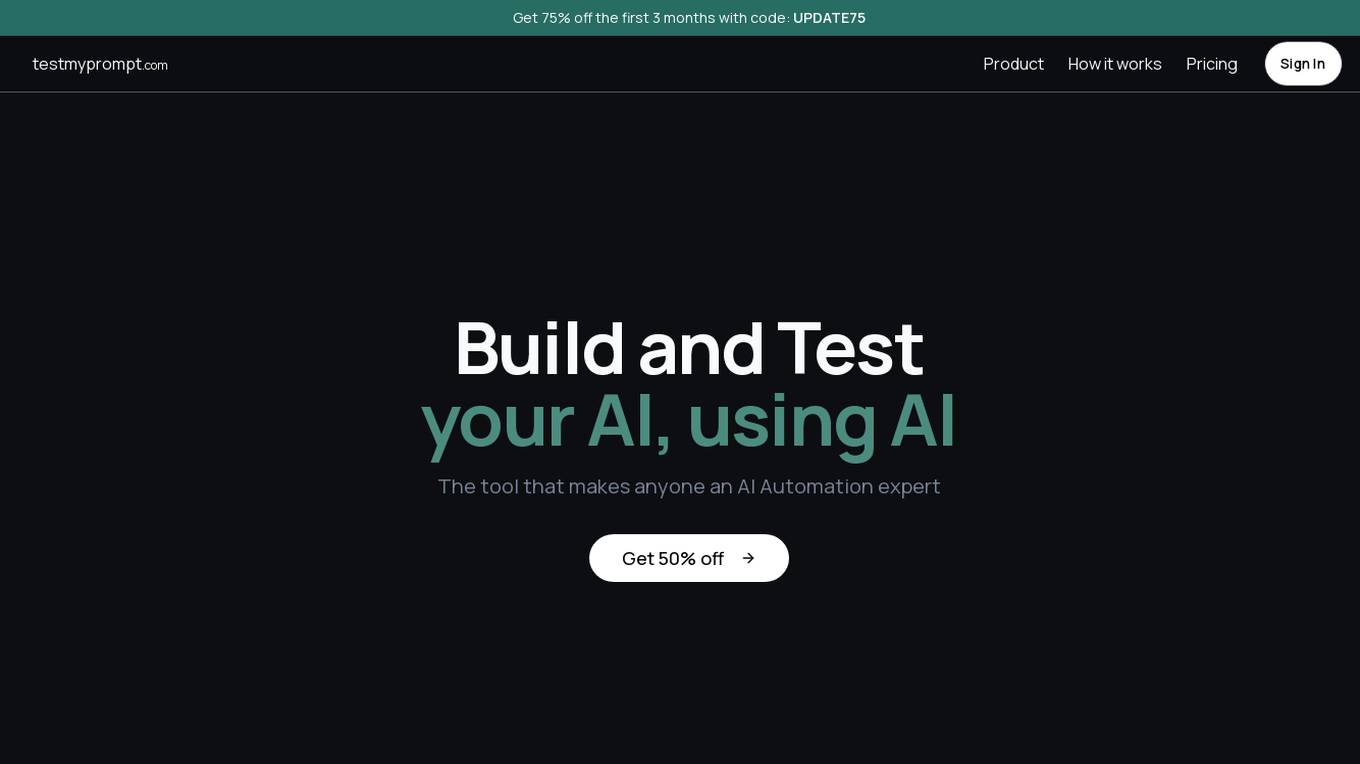
Testmyprompt
Testmyprompt is an AI prompt software designed for AI Automation Agencies. It allows users to build and test AI prompts quickly and efficiently, saving significant time and ensuring consistency in prompt creation. The tool enables users to simulate thousands of conversations in seconds, import AI settings, add test questions with variations and success criteria, and analyze AI performance to identify areas of improvement. Testmyprompt helps users optimize their AI models for better performance and customer interaction.

Imagga
Imagga is a leading provider of image recognition solutions for developers and businesses. Its API empowers intelligent apps with customizable machine learning technology. Imagga's solutions include tagging, categorization, cropping, color extraction, visual search, facial recognition, custom training, and content moderation. These solutions are used by over 30K startups, developers, and students, and trusted by over 200 business customers in more than 82 countries worldwide.
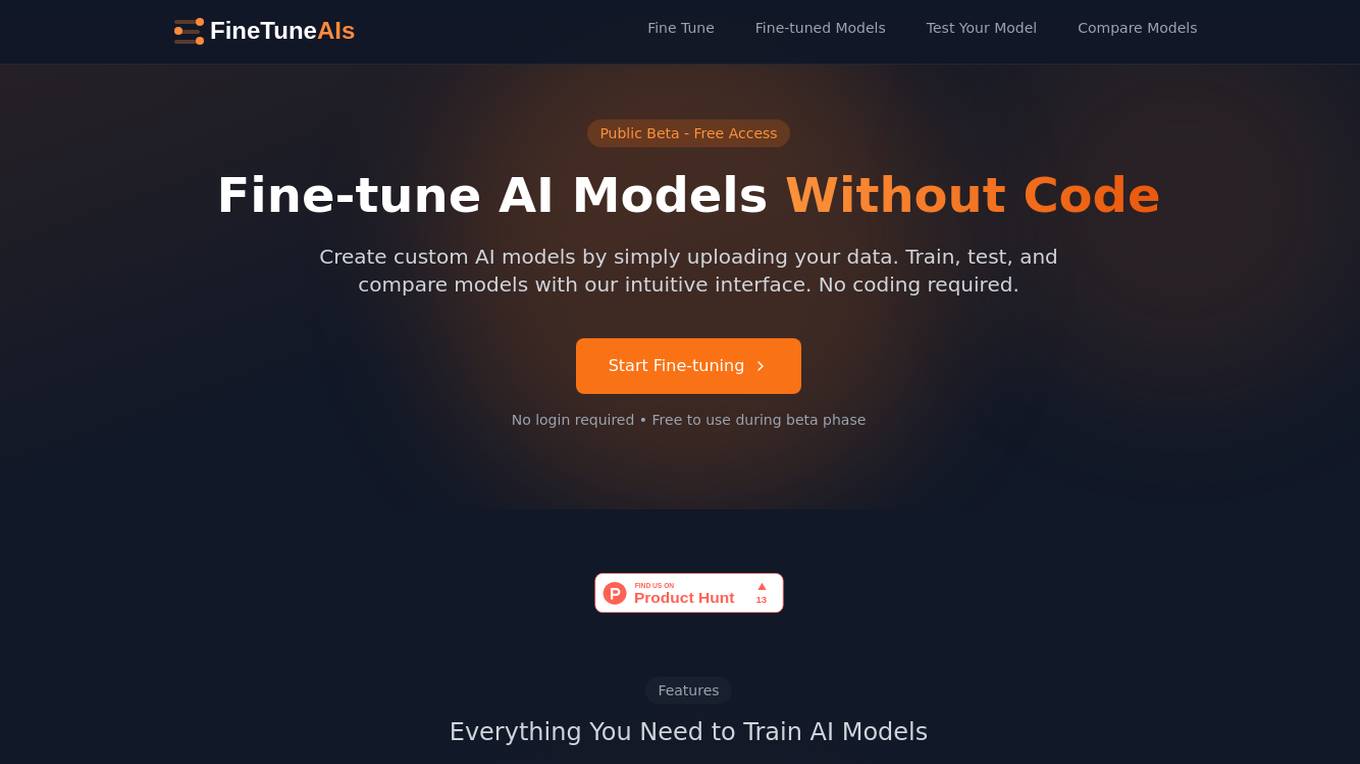
FineTuneAIs.com
FineTuneAIs.com is a platform that specializes in custom AI model fine-tuning. Users can fine-tune their AI models to achieve better performance and accuracy. The platform requires JavaScript to be enabled for optimal functionality.

Fe/male Switch
Fe/male Switch is a women-first startup game that offers a browser-based startup simulator experience. Players can assemble a team, create a startup with an investor and mentor, gain startup experience, win prizes, and get funded. The game aims to help individuals build their first startup, validate ideas, and overcome startup challenges. It provides a platform for aspiring entrepreneurs to test their entrepreneurial potential and learn essential business skills in a risk-free environment. Fe/male Switch features a unique Gamepreneurship methodology, AI co-founder support, and educational resources to guide players through the startup building process.
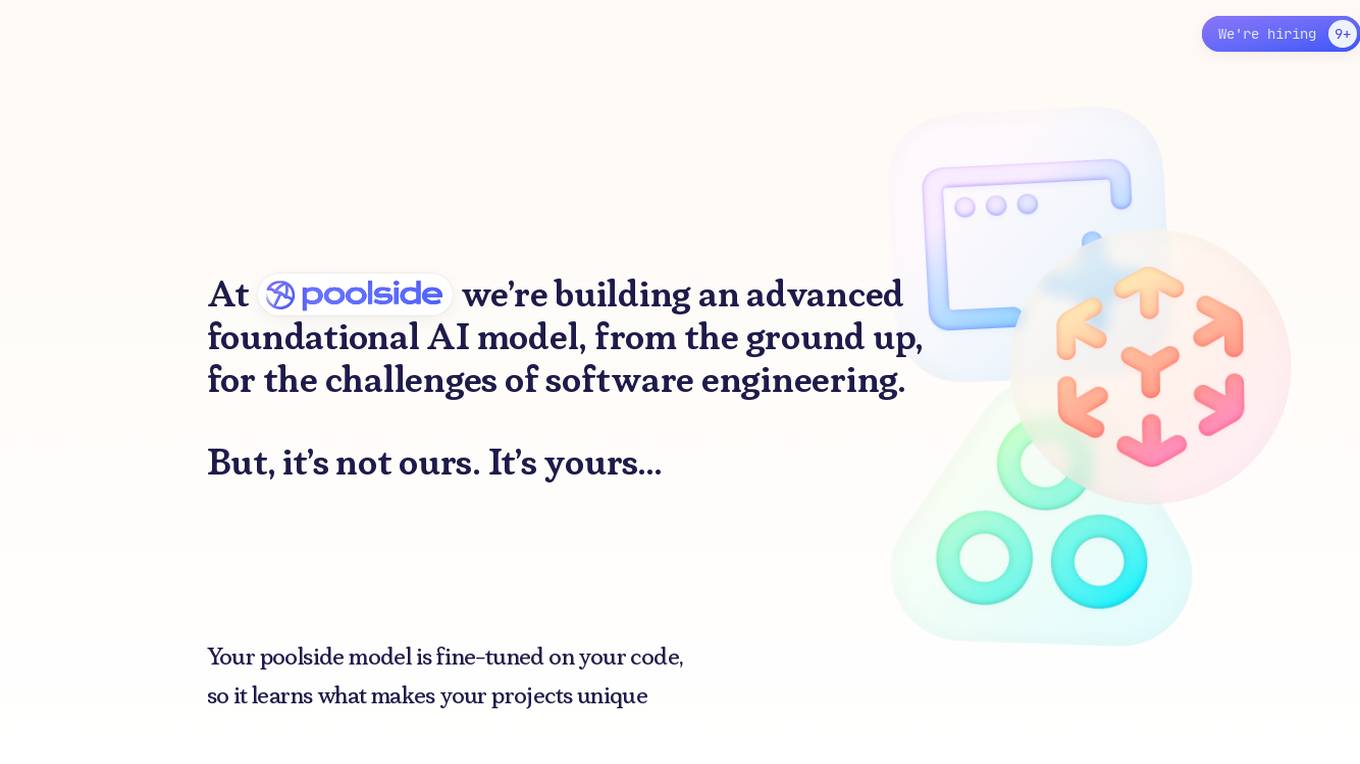
poolside
poolside is an advanced foundational AI model designed specifically for software engineering challenges. It allows users to fine-tune the model on their own code, enabling it to understand project uniqueness and complexities that generic models can't grasp. The platform aims to empower teams to build better, faster, and happier by providing a personalized AI model that continuously improves. In addition to the AI model for writing code, poolside offers an intuitive editor assistant and an API for developers to leverage.

Glambase
Glambase is an AI Influencer Creation Platform that allows users to create personalized AI influencers with advanced customization options. Users can build virtual personas, interact with AI characters, and monetize their AI influencers. The platform offers a wide range of AI influencer models with diverse personalities and characteristics, catering to various preferences and needs of users. Glambase revolutionizes the way individuals engage with AI relationships and social media, providing a seamless and efficient solution for content creation and audience engagement.
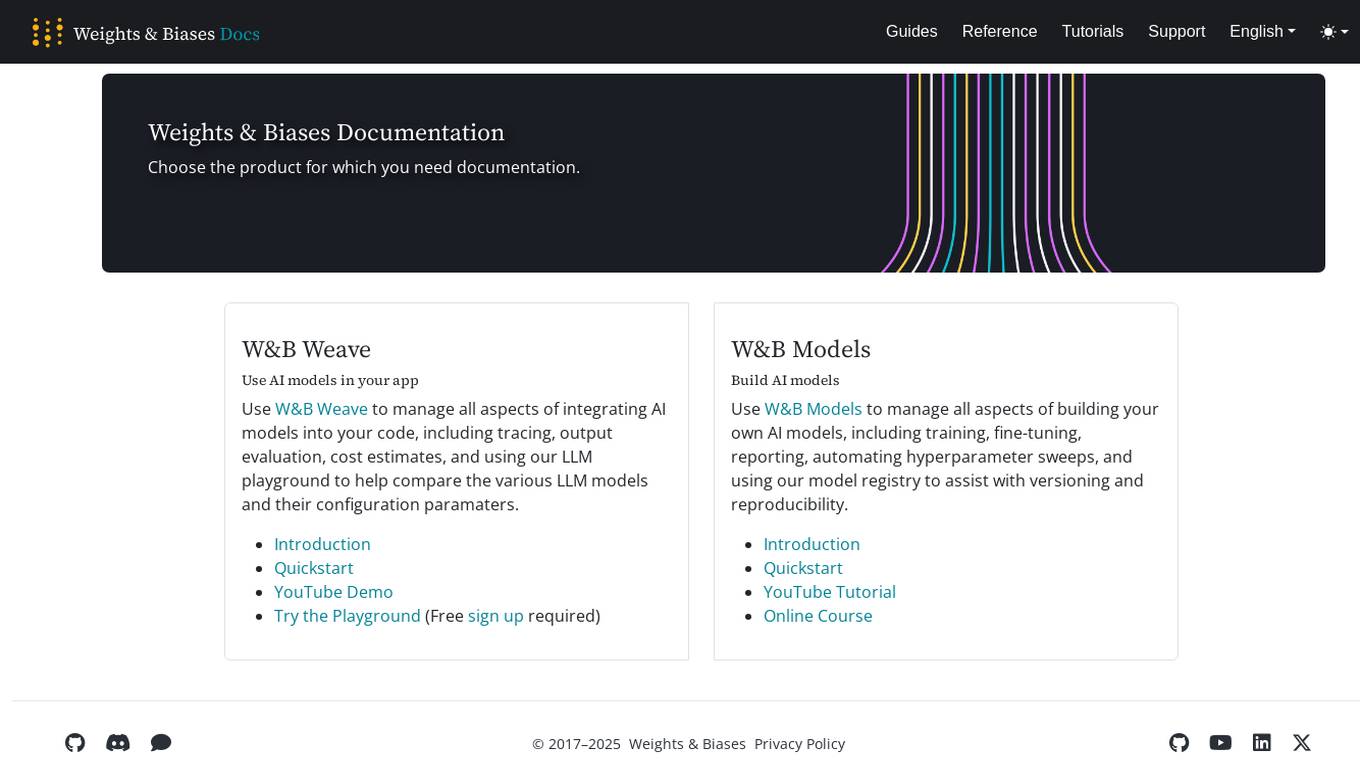
Weights & Biases
Weights & Biases is an AI tool that offers documentation, guides, tutorials, and support for using AI models in applications. The platform provides two main products: W&B Weave for integrating AI models into code and W&B Models for building custom AI models. Users can access features such as tracing, output evaluation, cost estimates, hyperparameter sweeps, model registry, and more. Weights & Biases aims to simplify the process of working with AI models and improving model reproducibility.
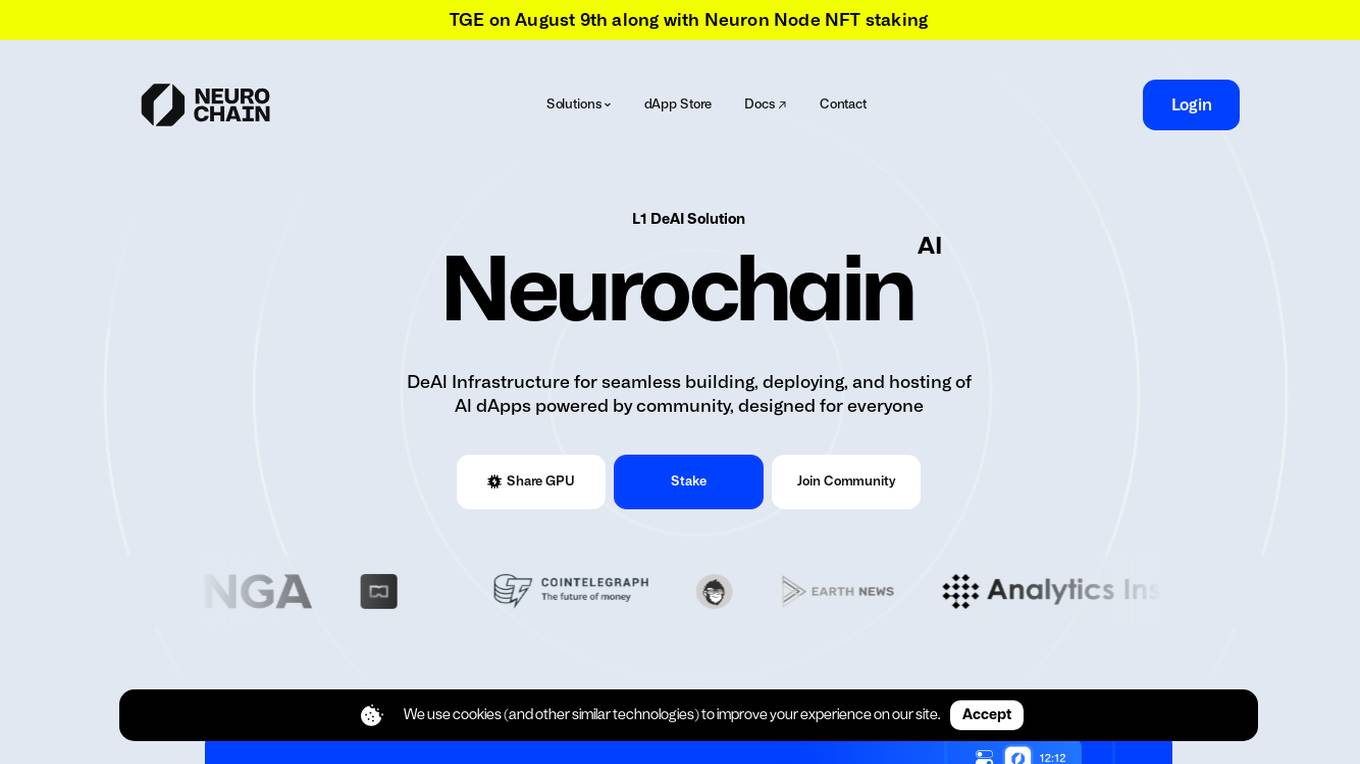
Neurochain AI
Neurochain AI is a decentralized AI-as-a-Service (DeAIAS) network that provides an innovative solution for building, launching, and using AI-powered decentralized applications (dApps). It offers a community-driven approach to AI development, incentivizing contributors with $NCN rewards. The platform aims to address challenges in the centralized AI landscape by democratizing AI development and leveraging global computing resources. Neurochain AI also features a community-powered content generation engine and is developing its own independent blockchain. The team behind Neurochain AI includes experienced professionals in infrastructure, cryptography, computer science, and AI research.
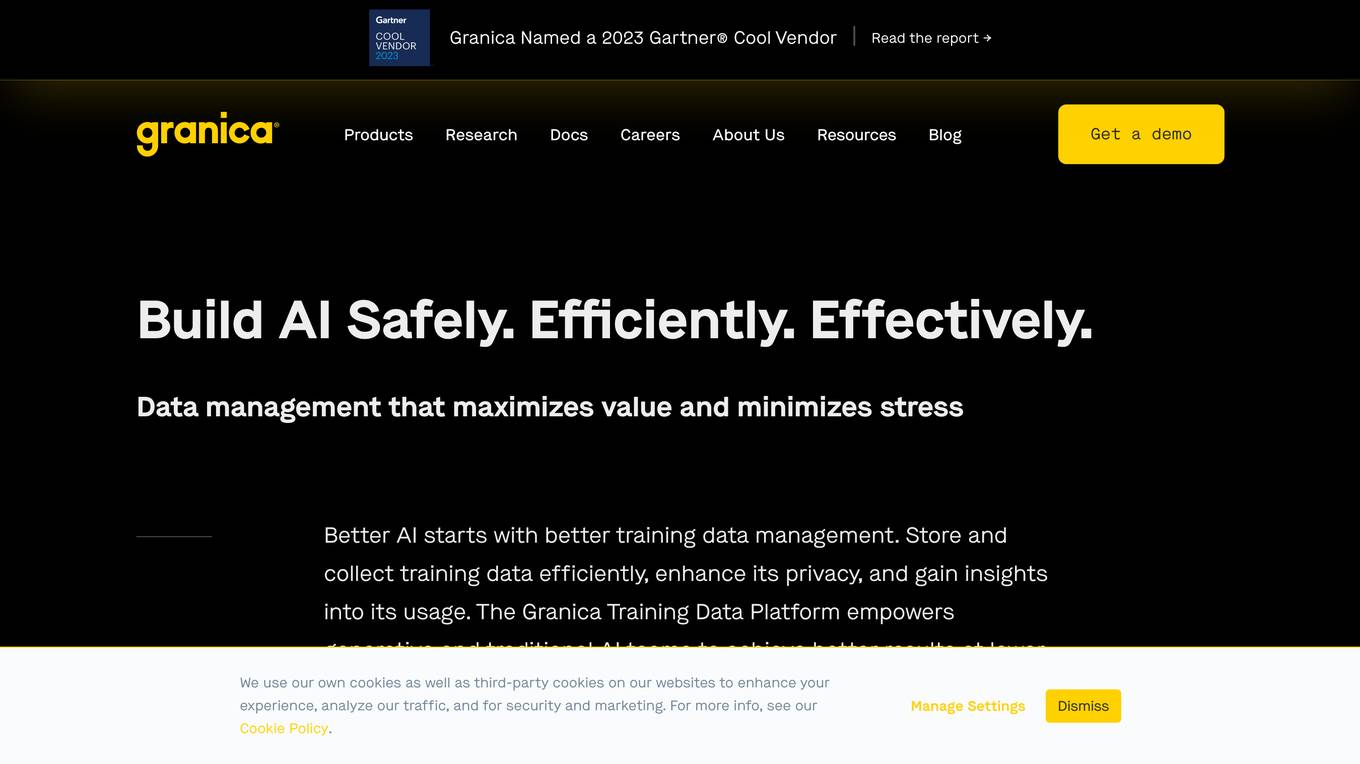
Granica
Granica is an AI tool designed for data compression and optimization, enabling users to transform petabytes of data into terabytes with self-optimizing, lossless compression. It offers state-of-the-art technology that works seamlessly across various platforms like Iceberg, Delta, Trino, Spark, Snowflake, and Databricks. Granica helps organizations reduce storage costs, improve query performance, and enhance data accessibility for AI and analytics workloads.
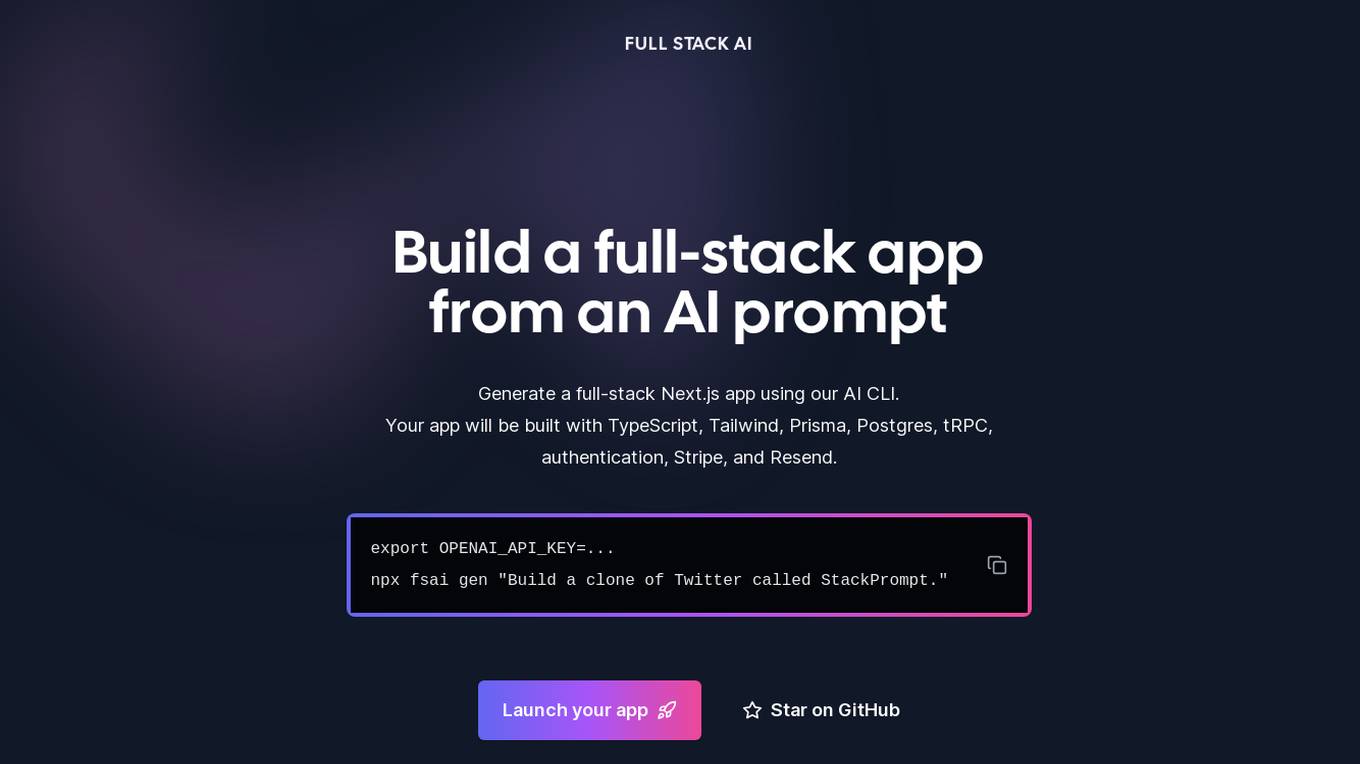
Full Stack AI
Full Stack AI is a tool that allows users to generate a full-stack Next.js app using an AI CLI. The app will be built with TypeScript, Tailwind, Prisma, Postgres, tRPC, authentication, Stripe, and Resend.

SteerCode
SteerCode is an AI-powered platform that allows users to create mobile and web applications without the need for coding skills. Users can build the app they want by leveraging AI technology to streamline the development process. The platform offers a range of features and tools to help users bring their ideas to life, making app development accessible to a wider audience.
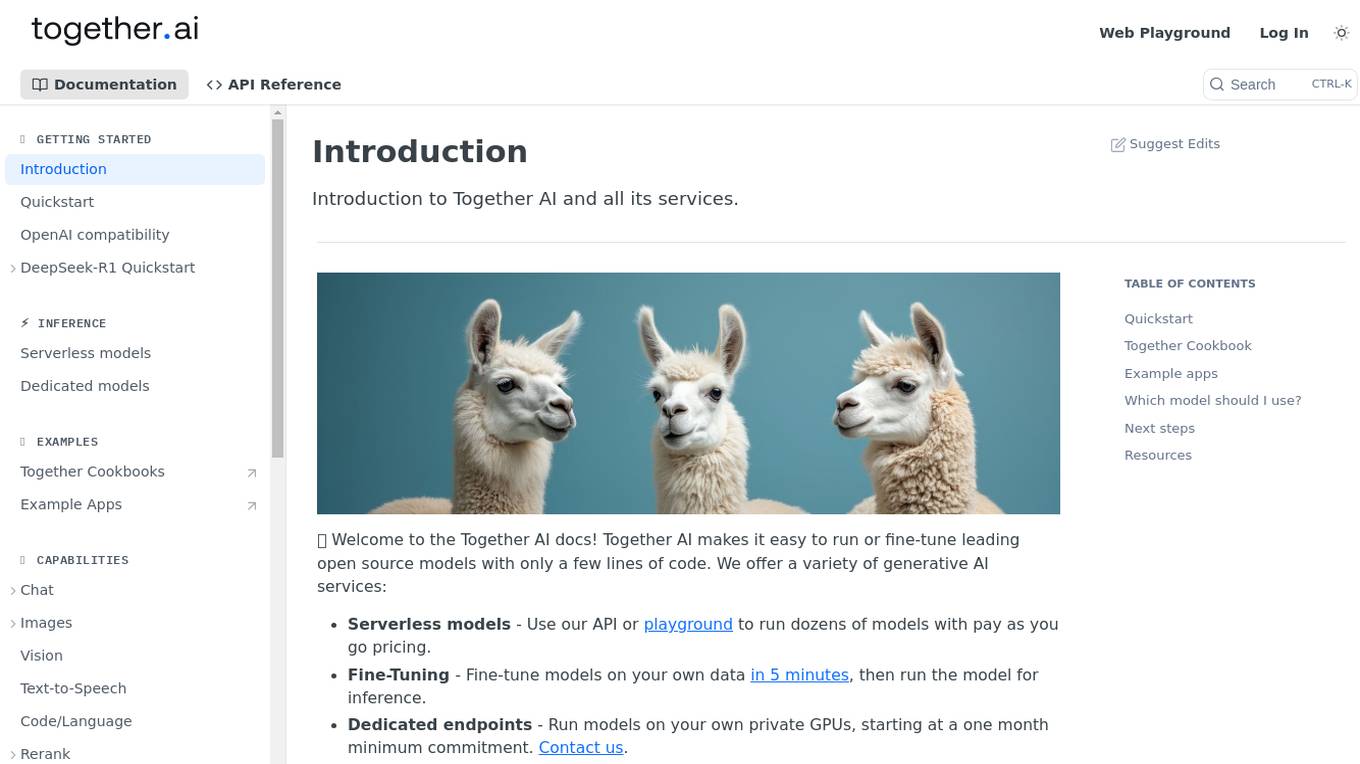
Together AI
Together AI is an AI tool that offers a variety of generative AI services, including serverless models, fine-tuning capabilities, dedicated endpoints, and GPU clusters. Users can run or fine-tune leading open source models with only a few lines of code. The platform provides a range of functionalities for tasks such as chat, vision, text-to-speech, code/language reranking, and more. Together AI aims to simplify the process of utilizing AI models for various applications.
0 - Open Source AI Tools
20 - OpenAI Gpts

Business Model Canvas Wizard
Un aiuto a costruire il Business Model Canvas della tua iniziativa

Business Model Canvas Strategist
Business Model Canvas Creator - Build and evaluate your business model
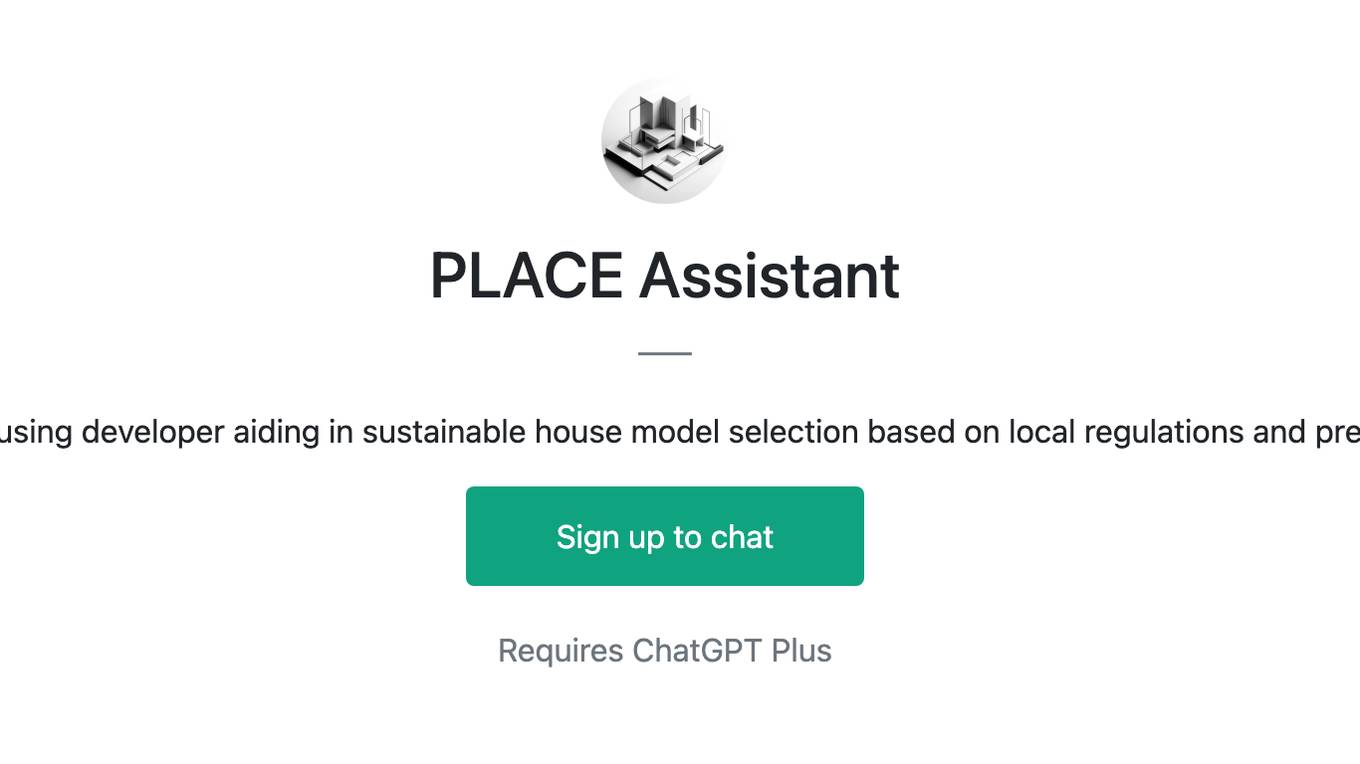
PLACE Assistant
A digital housing developer aiding in sustainable house model selection based on local regulations and preferences.
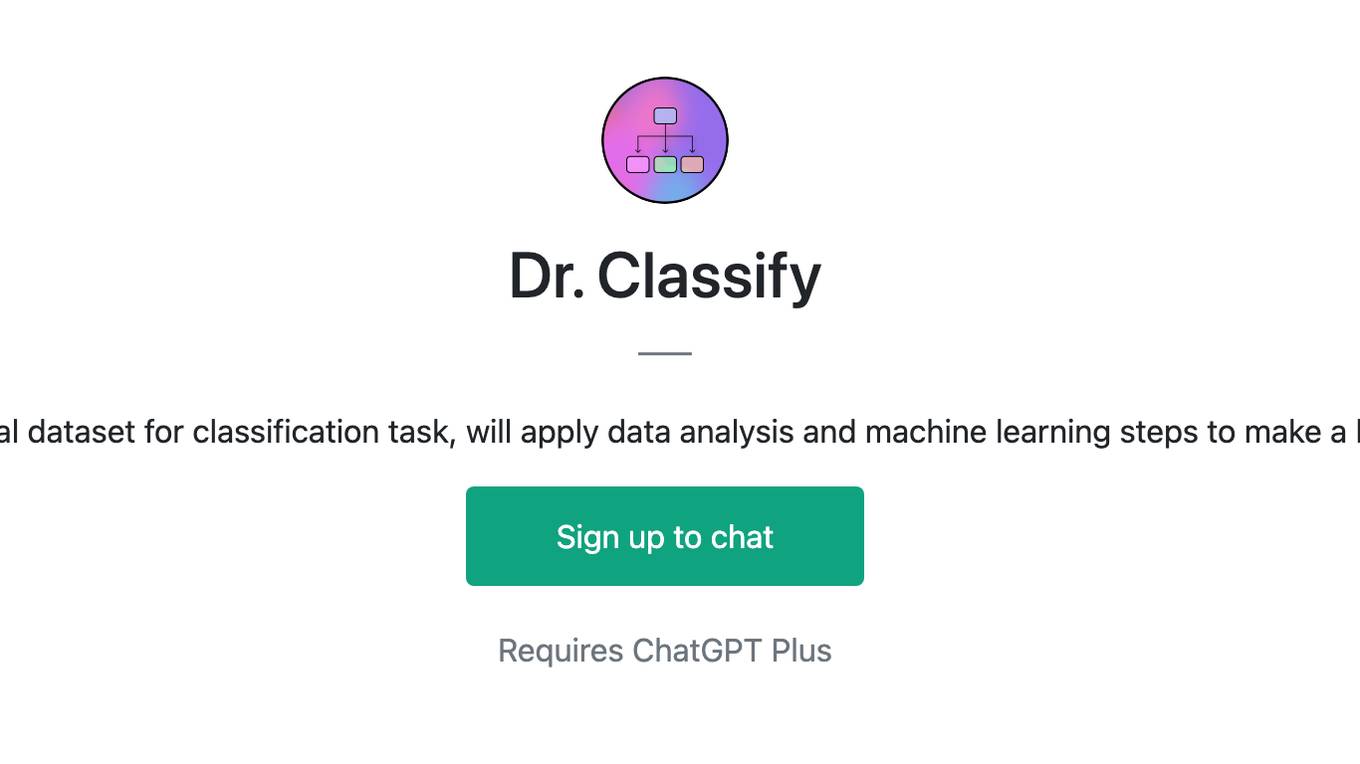
Dr. Classify
Just upload a numerical dataset for classification task, will apply data analysis and machine learning steps to make a best model possible.
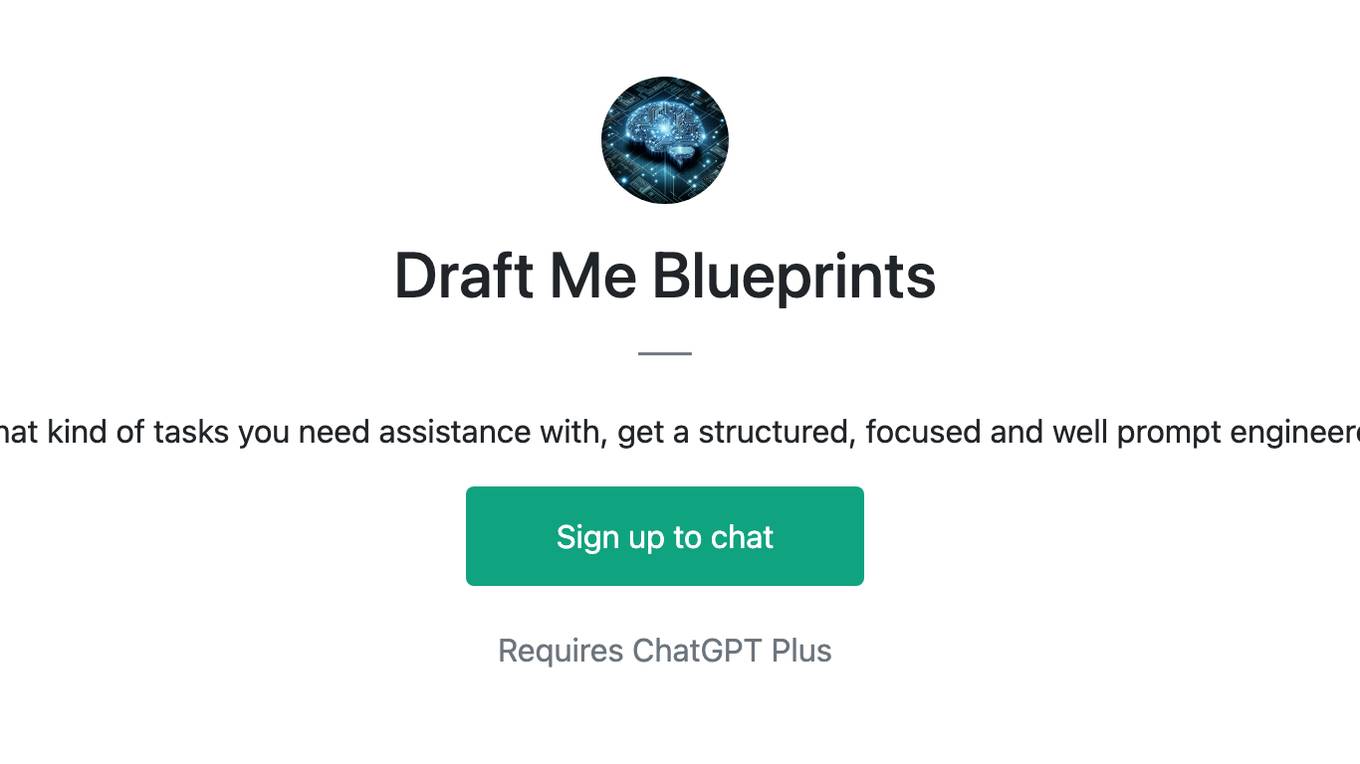
Draft Me Blueprints
Describe the AI you want to build and what kind of tasks you need assistance with, get a structured, focused and well prompt engineered blueprint to paste into GPT-Builder.
Lean Startup Consultant
A serial entrepreneur consultant inspired by 'Lean Startup' principles.

Kisau Insights
Advice on fashion photography, photoshoot collaboration, and portfolio tips.
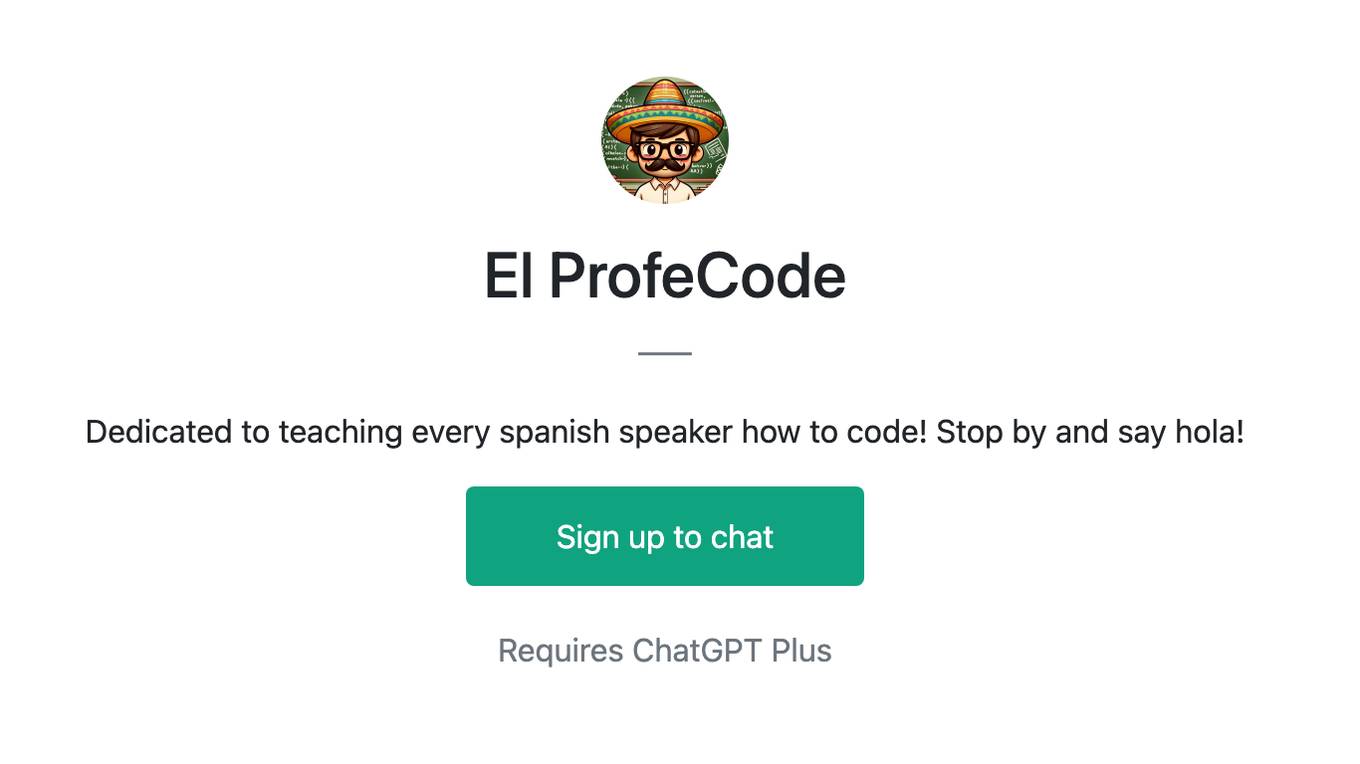
El ProfeCode
Dedicated to teaching every spanish speaker how to code! Stop by and say hola!
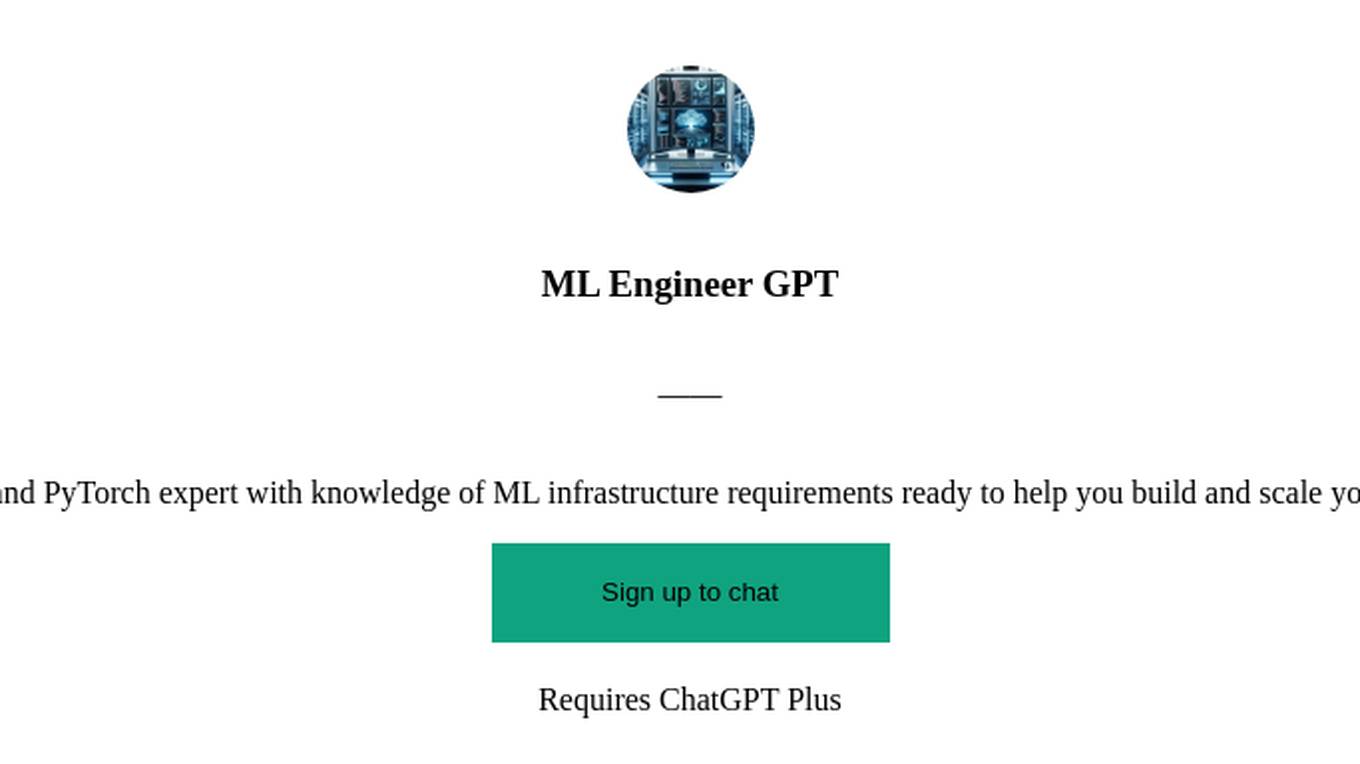
ML Engineer GPT
I'm a Python and PyTorch expert with knowledge of ML infrastructure requirements ready to help you build and scale your ML projects.
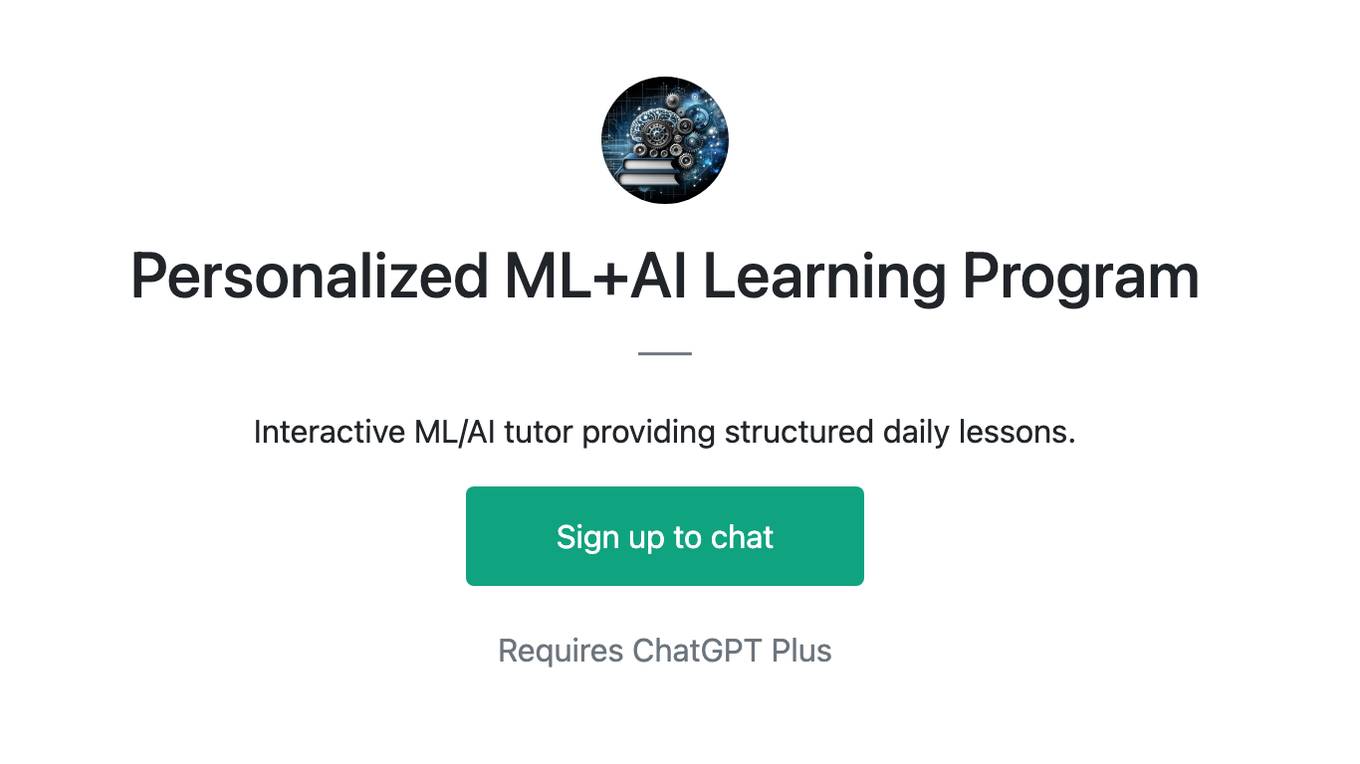
Personalized ML+AI Learning Program
Interactive ML/AI tutor providing structured daily lessons.
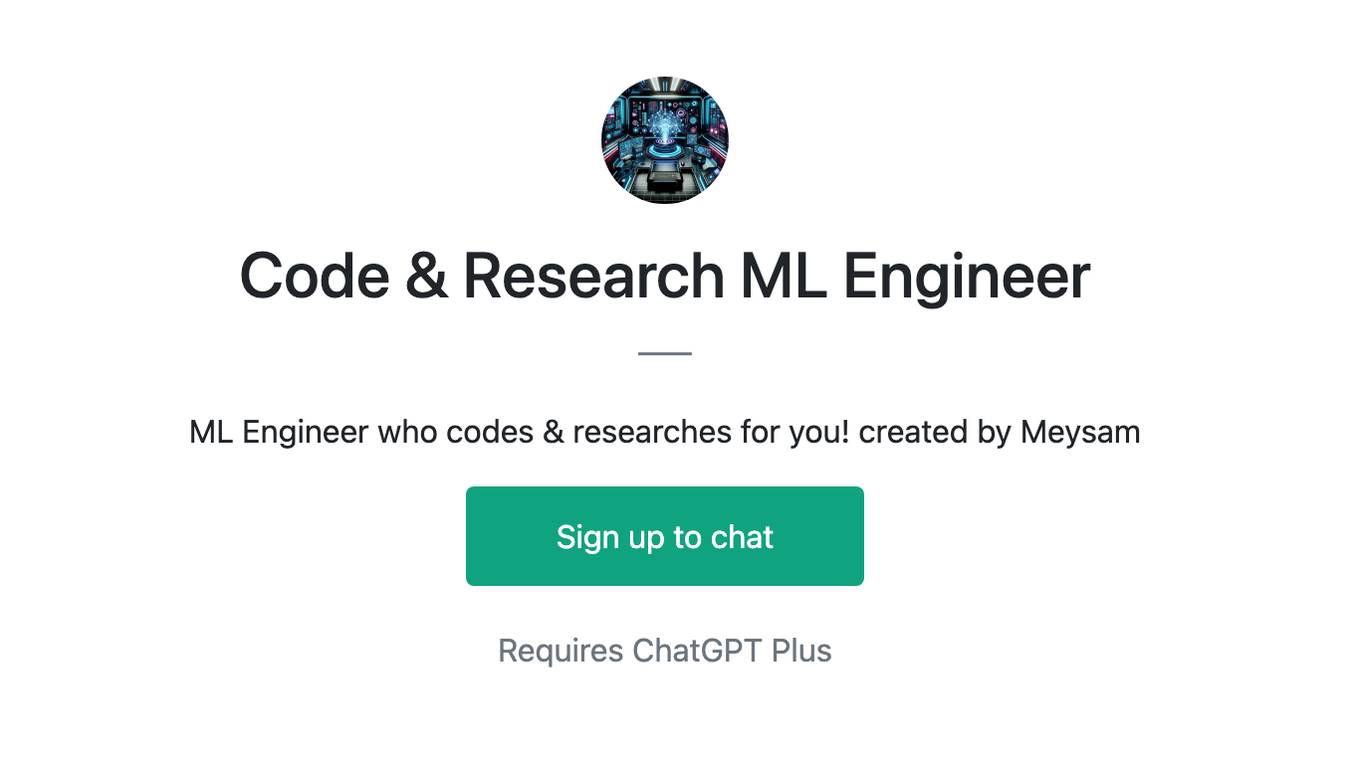
Code & Research ML Engineer
ML Engineer who codes & researches for you! created by Meysam
